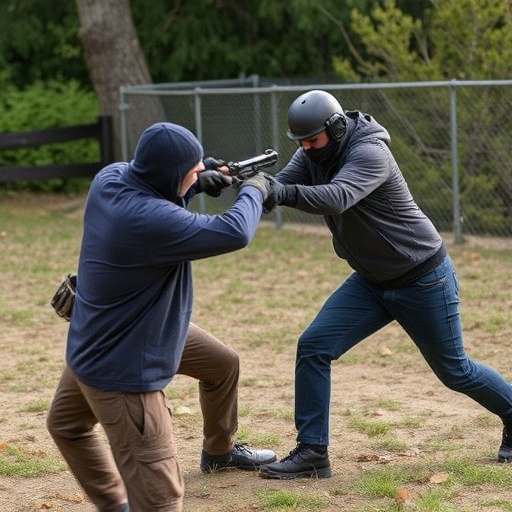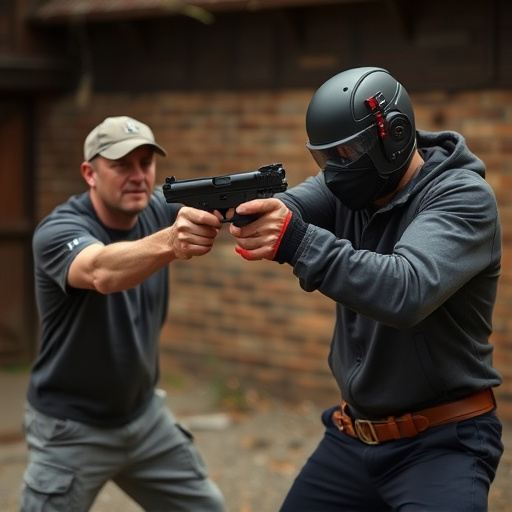Civilian Taser Ownership: State Laws and Self-Defense Rights Explained
Understanding civilian taser ownership laws is crucial for those considering self-defense with stun…….
Understanding civilian taser ownership laws is crucial for those considering self-defense with stun guns in the U.S., where regulations vary greatly from state to state, affecting age restrictions, permit requirements, and safety training needed for responsible ownership of a "best value stun gun for self-defense." Staying informed about local rules ensures safe deployment without causing harm or endangering others.
“Uncover the legal landscape surrounding civilian tasers and their ownership requirements. In an era where personal safety is paramount, understanding state laws regarding stun guns is essential for those seeking effective self-defense solutions. This comprehensive guide delves into ‘Understanding Civilian Taser Ownership: A Legal Perspective’, explores ‘State-by-State Requirements’, clarifies ‘Eligibility Criteria’, and outlines the rights and responsibilities of tasers owners, ensuring you’re informed about the best value stun guns for your needs.”
- Understanding Civilian Taser Ownership: A Legal Perspective
- State-by-State Requirements for Stun Gun Acquisition
- Eligibility Criteria: Who Can Own a Taser?
- Rights and Responsibilities of Taser Owners
Understanding Civilian Taser Ownership: A Legal Perspective

Understanding Civilian Taser Ownership: A Legal Perspective
In recent years, civilian taser ownership has gained prominence as a viable option for personal self-defense. The growing interest in stun guns, particularly those that offer the best value in terms of power and price, underscores the desire for effective self-protection measures. However, navigating the legal landscape surrounding taser ownership is crucial to ensure compliance with state laws. Each jurisdiction has its own set of rules and regulations regarding civilian taser possession, use, and transportation, making it essential to check local statutes before purchasing or carrying a stun gun.
State laws vary widely when it comes to taser ownership requirements. Some states allow unrestricted purchase and carry, while others mandate specific licenses or permits. Certain jurisdictions may also impose restrictions on the type of taser that can be owned, its power output, and where it can be used or carried. Understanding these legal parameters is vital for responsible taser ownership, ensuring both personal safety and adherence to the law.
State-by-State Requirements for Stun Gun Acquisition

In the United States, the laws surrounding civilian stun gun ownership vary significantly from state to state. Understanding these requirements is crucial for those seeking the best value stun gun for self-defense. Some states have relatively relaxed regulations, allowing individuals to purchase stun guns without a permit or background check. These states often limit the power of the device and may restrict its use to self-defense purposes only.
On the other hand, several states have stringent rules in place. They might mandate that buyers obtain a permit, undergo a thorough background check, or even complete a training course before acquiring a stun gun. Some jurisdictions also differentiate between stun guns and tasers, with different licensing requirements for each. For individuals prioritizing self-defense with the best value stun gun, navigating these state-by-state requirements is essential to ensure compliance while securing an effective personal safety tool.
Eligibility Criteria: Who Can Own a Taser?

In many states across the US, civilians can legally own a taser for self-defense purposes, but eligibility criteria vary significantly from one state to another. Generally, individuals looking to purchase a taser as a best value stun gun must meet certain requirements. These often include being at least 21 years old (or 18 in some states) and having no prior criminal record involving violence or felony convictions. Some states also mandate completion of a safety training course before purchasing a taser, ensuring responsible use and handling.
Additional eligibility factors may include proof of residency, such as a valid driver’s license or state ID card, and possibly a background check. It is crucial for prospective taser owners to research and understand the specific laws in their respective states regarding civilian ownership, as well as any local ordinances that might further restrict or regulate the possession and use of stun guns for self-defense.
Rights and Responsibilities of Taser Owners

Owning a taser for self-defense comes with both rights and responsibilities. First, it’s crucial to understand that while tasers can be an effective tool for personal safety, they are regulated by state laws. Before purchasing one, ensure you meet the legal requirements, including age restrictions and any necessary training or licensing. Owning a taser grants individuals a powerful means of self-defense against potential threats, offering a non-lethal option to protect oneself, their family, or others in various situations.
Taser owners have a responsibility to use this technology responsibly and in accordance with local regulations. This includes proper storage, safe handling, and understanding the legal implications of its use. The best value stun gun for self-defense should be treated as a serious tool, requiring the owner to stay informed about their state’s laws and guidelines for usage. Responsible ownership involves learning when and how to deploy the taser legally, ensuring it remains a viable option for safety without causing harm or endangering others.
In conclusion, understanding the legal landscape surrounding civilian Taser ownership is key to ensuring responsible self-defense with a best value stun gun. Each state has its own requirements and eligibility criteria, ranging from permit mandates to strict background checks. As a prospective Taser owner, it’s crucial to research and comply with these regulations to exercise your rights and responsibilities effectively. By staying informed, you can make an informed decision on acquiring a stun gun for personal safety without compromising legal integrity.


